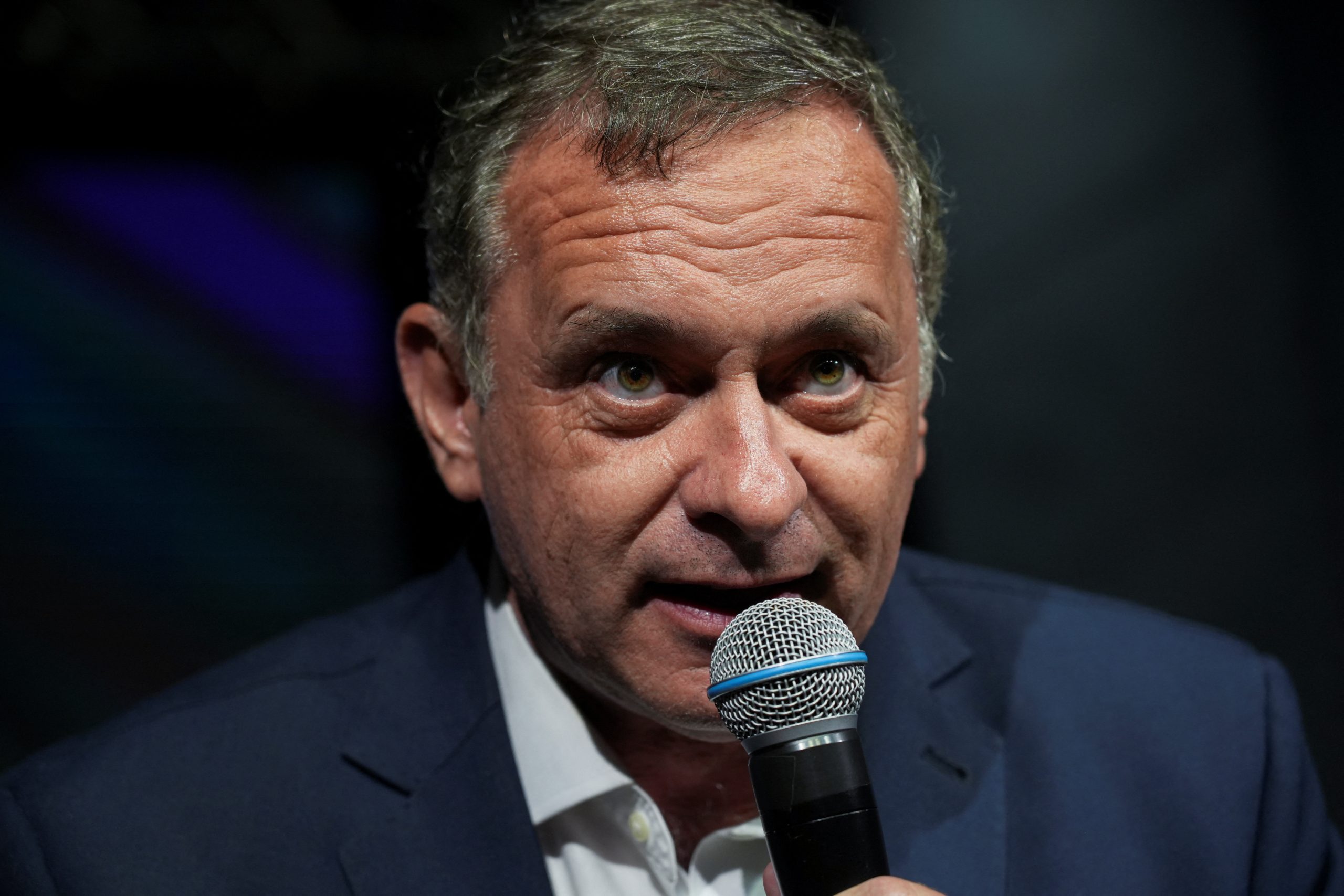Uruguay’s recent presidential election has progressed to a runoff between Yamandú Orsi, a center-left mayor, and Álvaro Delgado, the center-right candidate from the ruling party. Orsi, a former teacher representing the Broad Front alliance, held a lead over Delgado with 42%-44% of the vote but fell short of the majority needed to secure an outright win.
Delgado, a former chief of staff under President Luis Lacalle Pou, gathered around 27%-28% of the vote. With neither candidate surpassing the 50% threshold, they will face off again on November 24. The election has been notable for its civility, contrasting sharply with the more polarized political climates in neighboring countries and the United States.
Orsi’s campaign capitalized on a desire among voters for stronger social programs and economic support in Uruguay, a nation where poverty rates and living costs remain high. Known for his relatable style and working-class background, Orsi emphasized policies that resonate with everyday Uruguayans, focusing on strengthening the social safety net.
His candidacy reflects the Broad Front’s past success when it governed from 2005-2019, during which time it implemented socially progressive policies, including the legalization of marijuana, same-sex marriage, and abortion. These achievements remain popular with many Uruguayans and have kept the Broad Front a formidable force in Uruguayan politics.

Uruguay’s Presidential Election Heads to Runoff as Orsi and Delgado Compete for November Decision
Delgado, meanwhile, positioned himself as a continuity candidate, vowing to maintain the policies of the Lacalle Pou administration, which has focused on a tough-on-crime approach amid rising concerns over public safety. His campaign has underscored the need to address homicides and robberies through strict security measures.
Delgado’s background as a veterinarian and former chief of staff helped him establish credibility with voters who support Lacalle Pou’s administration, which enjoys a 50% approval rating. He was accompanied by the election’s third-place candidate, Andrés Ojeda, a lawyer who drew younger voters with an energetic and unconventional campaign style, adding some appeal to the conservative bloc.
Uruguay’s electoral environment remains distinct in its level of civility, a trait that has earned it a reputation as one of South America’s most stable democracies. Political analyst Juan Cruz Díaz noted the “boring” but stable nature of Uruguay’s democracy, contrasting it with the volatility seen in neighboring nations like Argentina and Brazil.
Uruguay’s model democracy and high voter turnout, with 89% of 2.7 million eligible voters participating, underscore its citizens’ engagement and commitment to a democratic process largely free from the divisive rhetoric seen elsewhere in the region.
Beyond the presidential election, voters also faced a contentious social security referendum, which proposed major changes like lowering the retirement age and increasing minimum payouts. However, exit polls suggest voters rejected the ambitious $23 billion proposal, wary of the potential for increased fiscal deficits and economic instability.
This decision reflects Uruguayans’ cautious approach to radical fiscal changes and their preference for stability. As the candidates prepare for the November 24 runoff, Uruguay’s democratic resilience and political stability stand out as defining features of this election season.











































